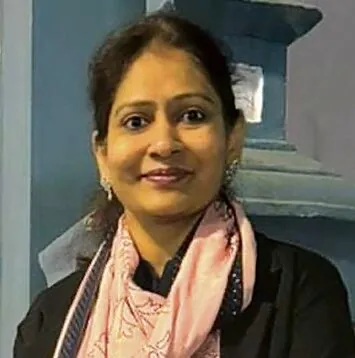
Empower Yourself: How Vaccination and Screening Can Eliminate Cervical Cancer
2024-11-17
Author: Li
Cervical Cancer: A Preventable Tragedy
Cervical cancer, a prevalent and often preventable disease, continues to claim lives at an alarming rate. In India, one woman succumbs to cervical cancer every eight minutes, while globally, approximately 600,000 women are diagnosed with the disease each year, resulting in over 300,000 fatalities. As we observe Cervical Cancer Elimination Day of Action on November 17, experts from the Department of Obstetrics and Gynaecology at PGIMER emphasize the critical importance of vaccination and screening to combat this disease.
Prevention is Your Power
Cervical cancer is the most common type of gynecological cancer among women, primarily caused by certain strains of the human papillomavirus (HPV), which is transmitted through sexual contact. While most HPV infections are cleared by the immune system without any symptoms, persistent infections can lead to cancer. Risk factors include compromised immunity, sexually transmitted infections, poor hygiene, smoking, and having multiple sexual partners. Hence, adopting a healthy lifestyle—maintaining personal hygiene, engaging in safe sexual practices, and consuming a nutritious diet—plays a vital role in prevention.
Age Matters: When to Get Vaccinated?
The HPV vaccine is most effective when administered to girls aged 9 to 15, ideally in two doses spaced 6 to 12 months apart. However, adults aged 26-45 should discuss vaccination options with their healthcare provider since benefits are not as pronounced in this age group. Teens and young adults over 15 require three doses. Importantly, HPV also contributes to other cancers, including those of the mouth, anus, and penis, making it imperative for boys aged nine and older to receive the vaccine as well. Furthermore, India has developed its own HPV vaccine, CERVAVAC, which protects against four high-risk HPV types, offering a safe, effective, and affordable choice for prevention.
Screening is Essential: Know Your Schedule
Women aged 30 to 60 should undergo regular screening for cervical cancer every three years. Not all HPV infections develop into cancer, but prolonged infections can lead to precancerous changes detectable through a Pap smear. Additionally, newer HPV tests provide greater assurance; a negative result significantly reduces the risk of cervical cancer in the following years, allowing for screenings every five years thereafter.
Understanding Your Results
If you test positive for HPV, it’s crucial to remember that this does not equate to a cervical cancer diagnosis. Rather, it indicates a higher risk requiring further testing, such as colposcopy or biopsy, which can lead to early intervention and successful treatment. Timely diagnosis is essential in managing and curing early-stage cervical cancer.
A Call to Action for Families and Communities
The Department of Obstetrics and Gynaecology, PGIMER, encourages parents, caregivers, young adults, and community leaders to actively participate in the fight against cervical cancer. By promoting vaccination and screening, we can save lives and protect ourselves and our loved ones. Don’t wait—schedule screenings and vaccinations for your mother, daughter, or partner today.
Join the Global Movement for Change
The World Health Organization (WHO) has set ambitious goals as part of its strategy to eliminate cervical cancer by 2030. These include ensuring that 90% of girls are fully vaccinated with the HPV vaccine by age 15, 70% of women are screened with high-performance tests by 35 and 45 years of age, and 90% of women diagnosed with cervical disease receive appropriate treatment.
Together, we can make significant strides toward eliminating cervical cancer. Get informed, get vaccinated, and get screened—your health is in your hands!





 Brasil (PT)
Brasil (PT)
 Canada (EN)
Canada (EN)
 Chile (ES)
Chile (ES)
 España (ES)
España (ES)
 France (FR)
France (FR)
 Hong Kong (EN)
Hong Kong (EN)
 Italia (IT)
Italia (IT)
 日本 (JA)
日本 (JA)
 Magyarország (HU)
Magyarország (HU)
 Norge (NO)
Norge (NO)
 Polska (PL)
Polska (PL)
 Schweiz (DE)
Schweiz (DE)
 Singapore (EN)
Singapore (EN)
 Sverige (SV)
Sverige (SV)
 Suomi (FI)
Suomi (FI)
 Türkiye (TR)
Türkiye (TR)